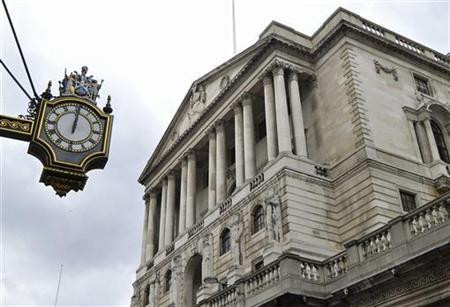Central banks watch: BoE in focus for rates, inflation report and Carney; Philippines, Iceland, Armenia, Ghana, Mozambique and Serbia to set rates

Rate decision and quarterly inflation report by the Bank of England mark the most important central bank events in the coming week while policy review by the Philippines, Armenia, Ghana, Mozambique, Serbia and Iceland also feature in the global list.
In addition, central bank heads of New Zealand, BoE and Japan are scheduled to speak on various occasions, and the financial stability report by the Reserve Bank of New Zealand and the quarterly economic review by the Bank of Canada will be watched.
The European Central Bank will publish the minutes of its last week's review meeting on Wednesday (13 May). For the eurozone, the Ecofin meeting scheduled for Tuesday will be significant.
BoE
The BoE will review the bank rate and its asset purchase target at the meeting on Monday. The market is not expecting any change in the rate or the scale of quantitative easing but the statement will be scrutinised for any fresh rate cues.
Monday's meeting is significant as it is the first after David Cameron's re-election that has dispelled fears of political uncertainty and strengthened the sterling to multi-month highs against major currencies.
The BoE inflation report on 13 May is likely to prove crucial for the pound as the UK's current inflation is 0% compared to the BoE target of 2%.
BoE Governor Mark Carney said in the February report that the very low inflation is explained by sharp falls in food and energy prices, which he said, was generally good news for British households and therefore will boost growth through increased spending.
The February report said the UK will meet its inflation target in two years and Wednesday's numbers are likely to impact the sterling and the economic outlook of the country.
The Philippines and Iceland
The Philippines central bank left the main rate at 4% at the 26 March review for the fourth consecutive time, saying inflation risks remain balanced and economic growth is expected to remain strong.
The Far East Asian country had kept the benchmark interest rate at 3.5% from late 2012 to mid-2014 but raised it to 4% in two instalments of 25 basis points each by the end of last year.
Now with crude oil prices at low levels and inflation below 3% so far this year, after staying in a range of 4%-5% last year, the policymakers have more reasons to think about a cut.
Iceland on the other hand, had slashed the key rate by 75 basis points in the fourth quarter of last year, taking it to 5.25%, as the annual inflation rate of the country had fallen to 0.8%.
Now with the price rise rate having risen to 1.5% or above, the Central Bank of Iceland is only likely to wait for some more time before further easing.
Iceland is scheduled to review on Wednesday and the Philippines on Thursday.
Minors
Serbia and Mozambique will decide rates on Monday. Serbia is on a big easing cycle and has slashed the benchmark interest rate by 100 basis points to 7% in the last meeting, adding to the 375 basis points cut since 2013.
After the 75 basis points cut late last year, the Mozambique central bank has been keeping the main rate at 7.5%.
Ghana's official interest rate is 21% after the 500 basis points increase in 2014. With inflation still showing a tendency to stay high, the bias is for further increases. The Armenian central bank has raised the main rate by 200 basis points this year, taking it to 10.5%.
Speakers
RBNZ Governor Graeme Wheeler will speak on Tuesday, BoE's Carney on Wednesday and BoJ's Haruhiko Kuroda will address the media on Friday.
In addition, San Francisco Fed President John Williams will speak on Tuesday and BoJ board member Takehiro Sato has been scheduled for the next day.
© Copyright IBTimes 2025. All rights reserved.






















